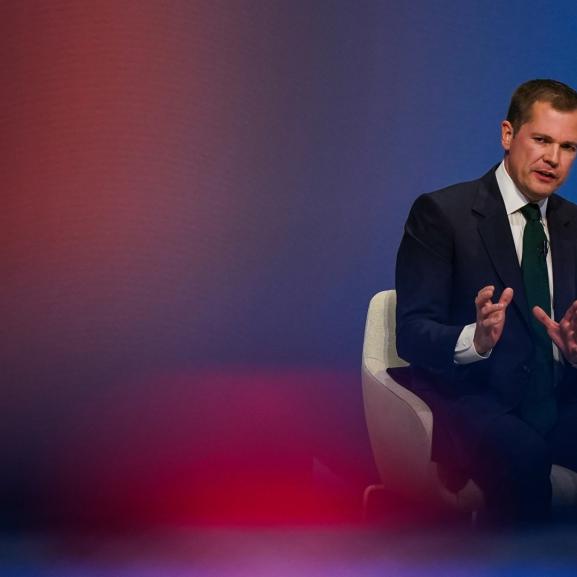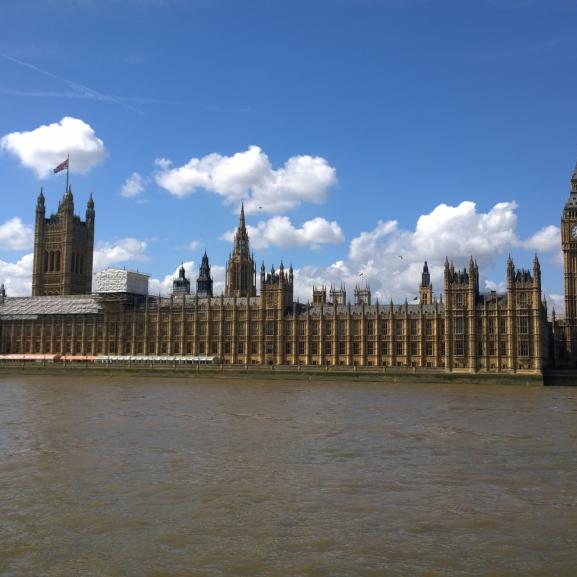Catgate and a coach before the horse
Camilla Jelbart-Mosse, attending the Conservative Party Conference, reports back on the debate at Conference about the Human Rights Act including the Home Secretary's misguided treatment of the issues in her plenary speech.
The Home Secretary's now infamous rendering of a cat as the reason a foreign national was allowed to stay on British soil has been put under much scrutiny since she gave her speech at Conference yesterday, exposing not only a poorly drawn example which had nothing to do with the Human Rights Act she was bashing, but also a rift in Cabinet as to the fate of our human rights protections in this country.
The Immigration Minister, Damian Green, did the rounds of TV interviews on Tuesday evening reading about "Maya" the cat from the court judgment – but he failed to point out that the reason the decision regarding the Bolivian man's right to stay in the UK had gone against the Home Office was because the UK Border Agency had mis-applied its own enforcement instructions and guidance on "partnership akin to marriage".
Theresa May's twisted example – prefaced with "we all know the stories about the Human Rights Act" – was designed to demonstrate how bound the government's hands are by the Act in preventing the UK from expelling "undesirable" people. She said: "The right to family life is not an absolute right and it must not be used to drive a coach and horses through our immigration system." Well, anyone who is familiar with the European Convention on Human Rights – and for those who aren't, May helpfully read out Article 8 in her speech yesterday – would not claim that Article 8 is an absolute right; the Government is obliged to weigh up an individual's right to family life against "the interests of national security, public safety or the economic well-being of the country, for the prevention of disorder or crime, for the protection of health or morals, or for the protection of the rights and freedoms of others." Therefore the Human Rights Act actually requires this balancing of family life against the broader public interest.
What was particularly disturbing for Freedom from Torture about May's "big announcement" on the re-drafting of immigration rules on right to family life - presumably designed to win over the party base in a speech with little news of significant policy development – was that it came days before the Government's consultation on family migration and Article 8 has even closed! For torture survivors living in the UK, the right to family and private life is often a crucial means of establishing the stability needed to rehabilitate following torture – but again, because this needs to be considered against the range of factors listed above, it is not an absolute right. Without pulling out of the European Convention on Human Rights – and no one in Government is seriously arguing that this should take place – these rights must continue to be protected in the UK. Is this all a load of political messaging designed to destabilise any support in the party for the Human Rights Act to remain? We are used to the peddling and misuse of scare stories from the right-wing press; it was a shame to see the sentiment echoed from the podium during the Home Secretary's speech.
Human Rights Act to stay or go?
Elsewhere at conference, the previous day, there was more nuanced debate on the future of the Human Rights Act.
The panel fielded at Liberty's event – far from all standing up in support of maintaining the Act in its current form – grappled with the issues surrounding application of the European Convention on Human Rights in this country.
Mary Riddell from the Telegraph set the scene with the European Convention of Human Rights developed as a "bulwark against torture, atrocity and repression" after the horrors of World War II. She pointed to Sadiq Khan MP as one of the few Labour politicians speaking up for the Act and warned against withdrawal from the ECHR which would leave us "in the company of Belarus". Eleanor Laing MP said that "you will never find a Conservative government changing the law which would give decent law-abiding people in the UK less access to the enforcement of rights than they deserve", but stated that this enforcement is not black and white and strongly welcomed the commission which has been set up to consider the future of the HRA against a possible British Bill of Rights.
Nicola Blackwood MP warned that the words "human rights" have become so de-valued in the UK that they're now associated with a "layabout committing benefit fraud" (in contrast to the well-accepted "right of women not to by systematically raped in the Democratic Republic of Congo") and it has become impossible to have a good debate based on fact. She called for urgent reform of the European Court of Human Rights and a re-drawing of the human rights debate in this country. Shami Chakrabarti, Liberty's Director who was chairing the panel, countered that this position was perhaps like "giving human rights botox" and we had to remember that human rights are for good and bad people, home and abroad – there is a constituency of the British public who are perhaps never going to be appeased on this.
Peter Oborne of the Telegraph suggested that some of the media arguments directed against the HRA were driven by "venal private interest" (ie. arguing against protection of privacy contained within Article 8 of the ECHR). He said that while he thought our Home Secretary to be "first rate", her recent populist remarks on the HRA left many questions lingering as she's not suggesting Britain should withdraw from the ECHR. The Attorney General, Dominic Grieve, said that we have much to thank the ECHR and HRA for, but the law is not - and should not be - static and he believed that a British Bill of Rights could do a lot of good for the UK. He said "we need rational discussion on the issues, not the peddling of untruths".
Let's hope others within the party agree after this Conference fiasco that rational debate trumps scare stories...and leave the catflap closed in future.






